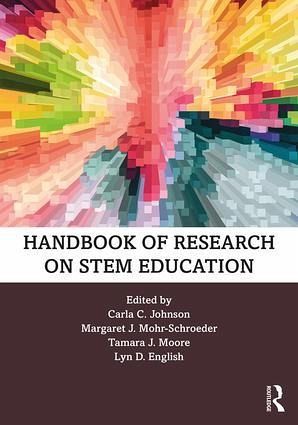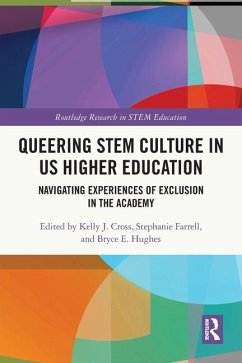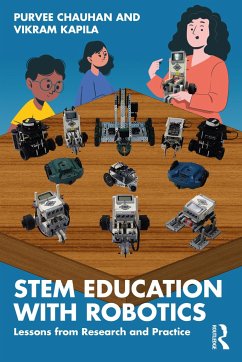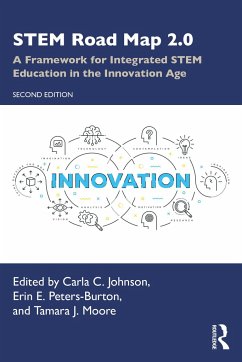
Handbook of Research on STEM Education

PAYBACK Punkte
56 °P sammeln!
The Handbook of Research on STEM Education represents a groundbreaking and comprehensive synthesis of research and presentation of policy within the realm of science, technology, engineering, and mathematics (STEM) education. What distinguishes this Handbook from others is the nature of integration of the disciplines that is the founding premise for the work - all chapters in this book speak directly to the integration of STEM, rather than discussion of research within the individual content areas.The Handbook of Research on STEM Education explores the most pressing areas of STEM within an int...
The Handbook of Research on STEM Education represents a groundbreaking and comprehensive synthesis of research and presentation of policy within the realm of science, technology, engineering, and mathematics (STEM) education. What distinguishes this Handbook from others is the nature of integration of the disciplines that is the founding premise for the work - all chapters in this book speak directly to the integration of STEM, rather than discussion of research within the individual content areas.
The Handbook of Research on STEM Education explores the most pressing areas of STEM within an international context. Divided into six sections, the authors cover topics including: the nature of STEM, STEM learning, STEM pedagogy, curriculum and assessment, critical issues in STEM, STEM teacher education, and STEM policy and reform. The Handbook utilizes the lens of equity and access by focusing on STEM literacy, early childhood STEM, learners with disabilities, informal STEM, socio-scientific issues, race-related factors, gender equity, cultural-relevancy, and parental involvement. Additionally, discussion of STEM education policy in a variety of countries is included, as well as a focus on engaging business/industry and teachers in advocacy for STEM education.
The Handbook's 37 chapters provide a deep and meaningful landscape of the implementation of STEM over the past two decades. As such, the findings that are presented within provide the reader with clear directions for future research into effective practice and supports for integrated STEM, which are grounded in the literature to date.
The Handbook of Research on STEM Education explores the most pressing areas of STEM within an international context. Divided into six sections, the authors cover topics including: the nature of STEM, STEM learning, STEM pedagogy, curriculum and assessment, critical issues in STEM, STEM teacher education, and STEM policy and reform. The Handbook utilizes the lens of equity and access by focusing on STEM literacy, early childhood STEM, learners with disabilities, informal STEM, socio-scientific issues, race-related factors, gender equity, cultural-relevancy, and parental involvement. Additionally, discussion of STEM education policy in a variety of countries is included, as well as a focus on engaging business/industry and teachers in advocacy for STEM education.
The Handbook's 37 chapters provide a deep and meaningful landscape of the implementation of STEM over the past two decades. As such, the findings that are presented within provide the reader with clear directions for future research into effective practice and supports for integrated STEM, which are grounded in the literature to date.














